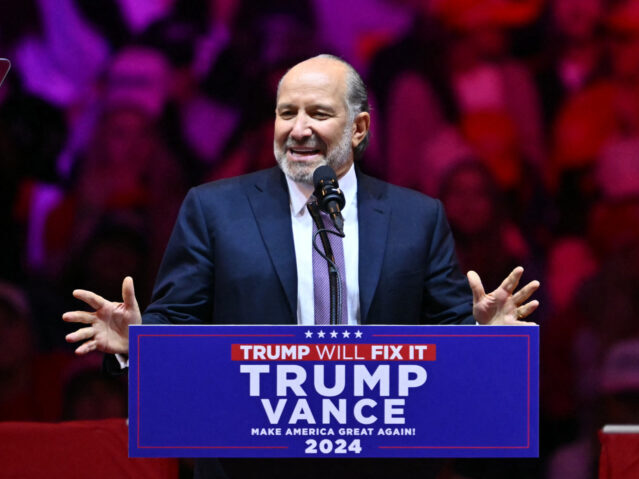President Donald Trump is expected to announce that he has picked Howard Lutnick, CEO of Cantor Fitzgerald and one of Wall Street’s most recognizable figures, to serve as his Commerce Secretary. The appointment underscores Trump’s inclination to staff key economic posts with business leaders possessing a private-sector pedigree, rather than traditional political experience.
Lutnick’s selection would come at a pivotal moment for U.S. economic policy. Lutnick has been a fierce defender of Donald Trump’s tariff proposals—pushing back on resistance from some on Wall Street who worry that they will spark a trade war or raise consumer prices.
Lutnick is no stranger to challenges. As the head of Cantor Fitzgerald, he rebuilt the firm after the 9/11 attacks, a tragedy that claimed 658 of his employees. His leadership in the aftermath not only solidified his reputation as a determined survivor but also highlighted his ability to navigate crisis scenarios. Trump’s decision to tap Lutnick reflects confidence in his capacity to steer Commerce through similarly turbulent economic waters.
Lutnick has long been an advocate for leveraging technology to modernize industries. At Cantor Fitzgerald, he championed electronic trading platforms, revolutionizing the way global markets operate. His expertise in financial innovation is expected to shape his approach at Commerce, particularly in areas like cryptocurrency regulation and the expansion of 5G infrastructure.
Trade policy will also be a cornerstone of his tenure. Lutnick is known to favor tough stances on foreign competitors, aligning with Trump’s broader agenda to bolster domestic manufacturing and rein in perceived economic abuses by China. His long experience on Wall Street could make him a key player in negotiating trade deals.
During the first administration, Commerce Secretary Wilbur Ross—also a veteran of Wall Street—was one of the most effective advocates for Trump’s tariff policies.
Under Lutnick’s leadership, the Commerce Department may see a shift in focus. His track record suggests a priority on leveraging technology and fostering public-private partnerships to drive economic growth. The department’s role in regulating international trade, promoting American businesses, and overseeing key industries will likely take center stage.
Whether Lutnick’s Wall Street savvy translates into success in Washington remains to be seen. But for Trump, his appointment signals a clear message: America’s economic strategy will be driven by those who know how to compete on the global stage.
Lutnick had been under consideration for the job of Secretary of the Treasury. Reports say that Trump is considering Kevin Warsh and Scott Bessent, among others, for that position.
